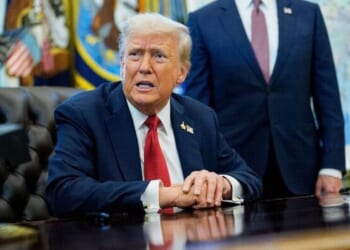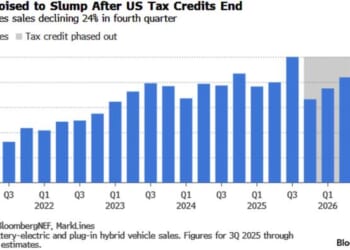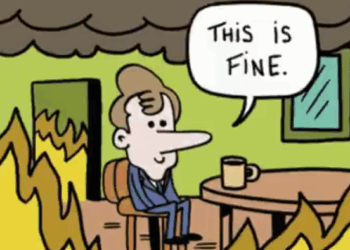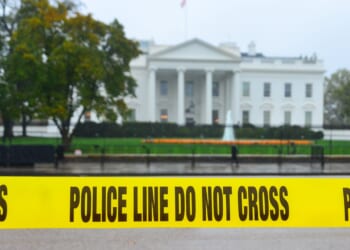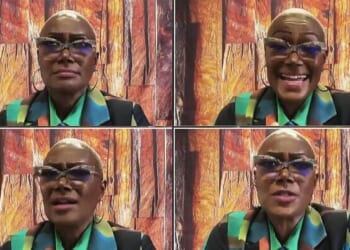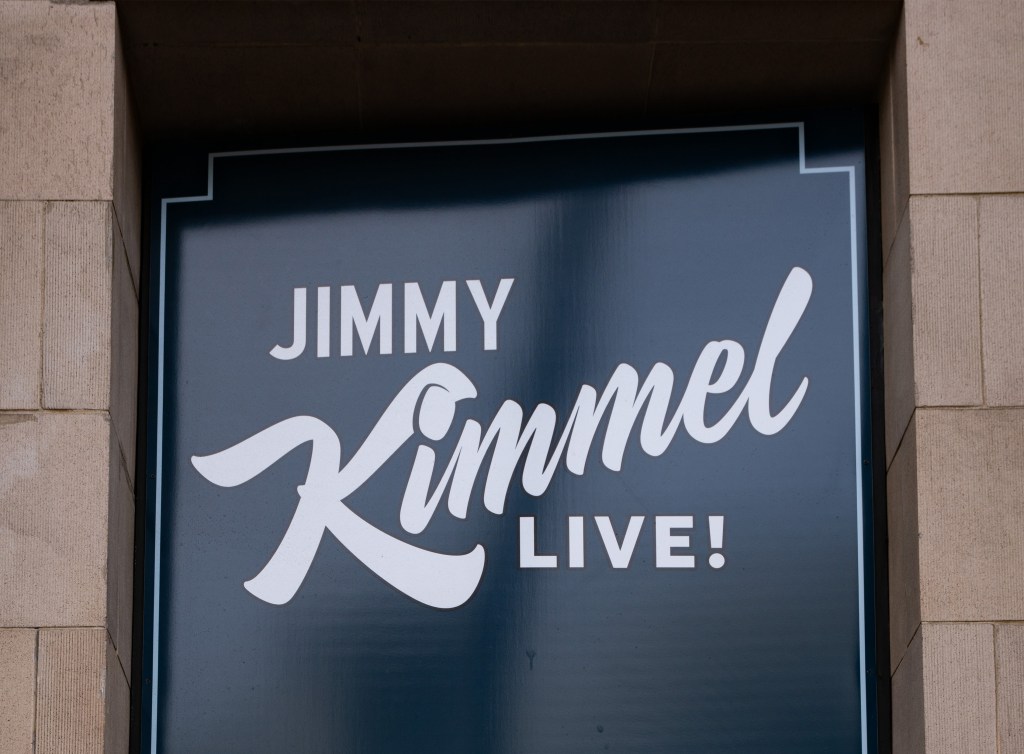
On Wednesday, Federal Communications Commission (FCC) Chair Brendan Carr said he was disgusted by Kimmel’s remarks, and indicated that he wanted to take action against ABC, which airs the show. “These companies can find ways to change conduct,” he said on right-wing activist Benny Johnson’s podcast, “or there’s going to be additional work for the FCC ahead.” In response, according to reporting in the Wall Street Journal, advertisers and affiliates were soon calling ABC, and Nexstar and Sinclair (which combined own more than 60 local ABC affiliate stations) soon announced they would not be broadcasting Kimmel’s show that night, and for the foreseeable future. Sinclair—which is right-leaning—also demanded Kimmel issue “a direct apology” and make a “meaningful personal donation” to Kirk’s family and to his student activist group, Turning Point USA.
When Dana Walden—co-chair of ABC’s parent company, Disney—spoke with Kimmel about his plans for Wednesday’s show, she said that she and other Disney executives feared that he would only make things worse for the network. And after a meeting with Disney CEO Bob Iger, they made the decision: Jimmy Kimmel Live! would be taken off the air “indefinitely.”
The FCC was established in 1934 by the Communications Act—replacing the earlier Federal Radio Commission—to regulate interstate and international communications across radio, television, wire, satellite, and cable. Given the limited electromagnetic spectrum for broadcasting, the agency’s role was to ensure it was operated in the public interest, and the FCC’s central powers included enforcing communication laws, allocating spectrum, and licensing broadcasters. In short, as the act states, the Commission’s mandate is to regulate consistent with the “public interest, convenience, and necessity.” Carr argued on the aforementioned podcast that “we have a rule on the book that interprets a public interest standard that says news distortion is something that is prohibited,” and on Friday, after Disney’s decision, Carr said that Kimmel’s comments were an attempt to “directly mislead the American public.”
But Rob Frieden—an emeritus professor of telecommunications and law at Penn State University—told TMD that defining the FCC’s mandate in a way that would penalize tasteless and factually inaccurate comments made by a late-night talk show host is “pushing the envelope.” The “public interest” mandate, per Frieden, should be interpreted in the light of Section 326 of the same Act, which stipulates that nothing “in this Act shall be understood or construed to give the Commission the power of censorship.”
Robert Corn-Revere, chief counsel for the Foundation for Individual Rights and Expression and former chief counsel for the FCC, concurred. “The public interest standard is not a blank check,” he told TMD. The “Fairness Doctrine,” he noted—which required broadcasters to provide balanced coverage of “issues of public importance”—was repealed by President Ronald Reagan’s FCC as too much of an intrusion on First Amendment rights.
But even if general language about the “public interest” has been interpreted in the past as giving the FCC some say over content, “it has never meant that the FCC as an agency can determine what programs are the right programs to air,” Corn-Revere argued. In the agency’s statement of what sort of speech it can regulate, posted on its own website, it notes that regulations are limited to “specific topics,” including obscenity, conduct of on-air contests, and hoaxes—along with news distortion. As Carr himself tweeted in February 2019, “Should the government censor speech it doesn’t like? Of course not. The FCC does not have a roving mandate to police speech in the name of the ‘public interest.’”
Clay Calvert, an emeritus professor at the Levin College of Law at the University of Florida and a senior fellow at the American Enterprise Institute, told TMD that typically, only a “staging or deliberate fabrication of news” rises to the standard. The FCC website also notes that it will only enforce penalties when it can be proven that broadcasters “have deliberately distorted a factual news report. Expressions of opinion or errors stemming from mistakes are not actionable.”
However, many on the right have contended that the FCC has not actually taken any action against Kimmel or ABC. Those blaming Carr for ABC’s decision to take Kimmel off the air were “wrong on the facts,” Sen. Tom Cotton, a Republican from Arkansas, argued on social media on Friday. “The network made the common-sense BUSINESS DECISION that lying while mocking a horrific murder is bad for ratings.”
That said, the FCC needn’t take direct regulatory action to chill speech. In 2024’s NRA v. Vullo, the Supreme Court held that government pressure on private actors can violate the First Amendment. In a unanimous decision, Justice Sotomayor wrote that New York financial superintendent Maria Vullo’s “guidance” letters—urging insurers and banks to avoid the NRA—were “reasonably understood as coercive,” adding that “the First Amendment prohibits government officials from wielding their power selectively to punish or suppress speech.”
But what about the Biden administration’s attempts to bully social media companies into taking down or labeling what it deemed “misinformation” during the COVID-19 pandemic? “Guys, it was literally *June 2024* when the Supreme Court ruled that it was ok for the Biden Administration to pressure tech platforms to censor COVID lockdown skeptics,” Avik Roy—co-founder of the Foundation for Research on Equal Opportunity and a prominent voice in conservative policy circles—wrote on X. “No one tweeting today about the ‘dire threats to free speech’ had anything to say about it.” However, in that case—Murthy v. Missouri—the court ruled 6-3 on standing grounds without addressing the merits of the constitutional question, unlike Vullo, which directly ruled on the First Amendment violation.
According to Olivier Sylvain, a professor at Fordham University’s law school who focuses on communications law, Carr’s threats also had more weight behind them than complaints from the Biden White House. “The Biden administration didn’t have equivalent authority with regards to social media” compared to Carr’s direct authority over broadcast licenses, he told TMD. “The consequences of the Carr threat are clear.”
The FCC also has significant leverage over another critical part of the broadcast TV industry: mergers. Nexstar, a company that owns 32 ABC affiliate stations, is currently pursuing a $6 billion merger with Tegna, which owns 13 affiliate stations. Roughly five hours after Carr’s interview with Benny Johnson last week, Nexstar announced that it would not be airing Kimmel’s show for the foreseeable future. “Nexstar strongly objects to recent comments made by Mr. Kimmel concerning the killing of Charlie Kirk,” the company said in a statement.
The FCC has already demonstrated its willingness to intervene during mergers. Shortly before the FCC ruled on its merger with Skydance Media, Paramount announced that it would appoint an ombudsman to investigate news bias at CBS News, and on July 2, the company settled a flimsy personal lawsuit from Trump for $16 million, right as Carr and the FCC opened a news distortion inquiry into 60 Minutes. The FCC approved the merger on July 25.
CBS’ settlement terms may have influenced Disney’s decision to pull Kimmel off the air, Calvert argued. “I think ABC could probably see, ‘Okay, do we want to get to the point where we’re fighting this, and we have to do something like that?’” he said. “No, it’s easier at this stage just to capitulate.” Kimmel might have a case in court—Frieden told TMD that the case wouldn’t have the “factual background” to “show that Kimmel directly incurred damages,” whereas Corn-Revere disagreed with this and said “the legal principles here are clear”—but Kimmel and ABC have given little indication they want to pursue that route.
The president, however, appears eager to continue the campaign against the media. “Congratulations to ABC for finally having the courage to do what had to be done,” Trump wrote on social media on Wednesday. “That leaves Jimmy and Seth, two total losers, on Fake News NBC,” he added, referring to Jimmy Fallon and Seth Myers. “Do it NBC!!!”
Some Republicans, however, have expressed alarm at the apparent eagerness of the White House to go after its enemies in the media. Carr’s statements were “dangerous as hell,” Sen. Ted Cruz, a Republican from Texas, said Friday on his podcast. “It might feel good right now to threaten Jimmy Kimmel, yeah, but when it is used to silence every conservative in America, we will regret it.”


